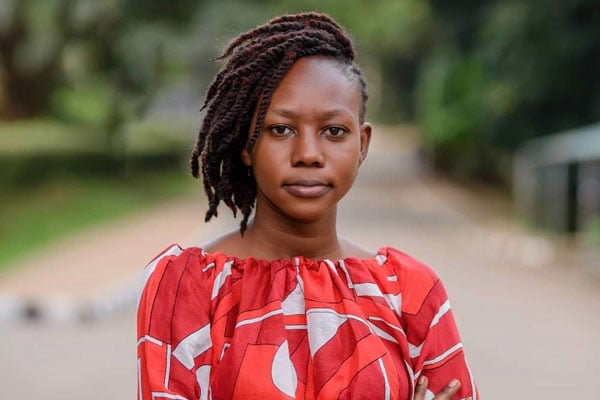Prime
Ugandan migrant secures 122 US scholarships worth Shs20b

Helms Ategeka with some of his many college acceptance letters. He graduates from high school next month in Oakland, California ahead of joining university. PHOTO/COURTESY/ CNN
What you need to know:
- He moved to the United States from Fort Portal in Western Uganda, in 2019, just before the world largely shut down due to the coronavirus pandemic.
Eighteen-year-old Helms Ategeka, a Ugandan migrant, has broken the internet after being accepted to 122 colleges in the United States with funding of up to $5.3 million (about Shs20 billion) in scholarships.
The Oakland, California teenager moved to the United States from Fort Portal in Western Uganda, in 2019, just before the world largely shut down due to the coronavirus pandemic.
He attended his new school through Zoom and missed out on a big part of interacting with others and learning the American culture.
He joined his father, Chris Ategeka, who had immigrated to the United States from Uganda in the late 2000s to attend the University of California, Berkeley.
Helms told CNN that he applied to 150 schools, giving his best shot in the application process, and out of those, 122 accepted him.
His father says he’s proud of Helms’ GPA and had hoped his son would pick a career with financial stability, like medicine or computer technology or that maybe Helms would follow in his footsteps as a mechanical engineer.
With a GPA of 3.94, Helms will be pursuing his dream career of becoming a pop star at the University of California, Berkeley.
His father told CNN: “He’s so confident that music is what he wants to do, it would be a disservice for me to try to guide him otherwise…that’s why he applied to a gazillion colleges to prove a point.”
He further revealed to the American broadcaster that Helms has always had a passion for music.
“Helms’ life revolves around music. At Head-Royce High School in Oakland, he was part of a cappella group that met every week to belt out covers of popular pop music. His room is stacked with CDs by Beyoncé and Bruno Mars. Before he starts college in the fall, he’s taking a summer trip to Peru with a choir to perform in churches and communities. So when he started his college application journey, he had one key requirement; the school needed to have a strong music programme,” Mr Ategeka said of his son.
Helms said he lives for music.
“I spend most of my time either listening to music, making music, or out there performing,” Helms said, adding: “I feel the most alive and fulfilled when I’m doing something related to music.”
He said he mostly used universities’ online portals for his applications, which made it easier to copy and paste his information to multiple places. While Helms spent many hours writing essays for different schools, most were variations of the same personal story.
In his essays, he highlighted his passion for music and his background as an immigrant. His father paid the application fee required by some universities.
As an immigrant, Helms is part of a growing demographic. Children born abroad or in the United States to an immigrant parent accounted for 58 percent of the increase in the nation’s college enrollment between 2000 and 2018, a study by the Migration Policy Institute shows.
“The face of US higher education is changing. Students are more likely to come from immigrant families than in the past,” the study says.
Helms’ new chapter comes at a precarious time for United States colleges and universities as Berkeley and other schools grapple with the aftermath of pro-Palestinian student protests that have led to disruptions, arrests, and debates about the limits of free speech.
But Ategeka says his son’s journey has reminded him to be open to new possibilities and ways of thinking. He believes Helms will find appropriate ways to be a part of difficult campus conversations.
Additional reporting by CNN






